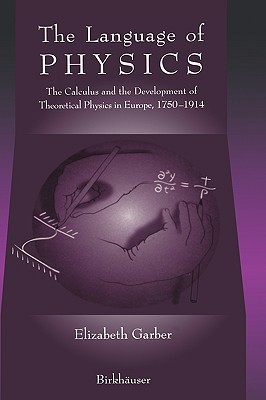
- We will send in 10–14 business days.
- Author: Elizabeth Garber
- Publisher: Birkhäuser
- ISBN-10: 0817640398
- ISBN-13: 9780817640392
- Format: 16.1 x 24.3 x 2.5 cm, hardcover
- Language: English
- SAVE -10% with code: EXTRA
Reviews
Description
This study began as an attempt to understand mechanics in the nineteenth century. The terms mechanics and mechanical world view were being used as general descriptions of nineteenth-century physicists' assumptions and interpretations of nature. However, there were no studies of the particulars of these assumptions or the range and content of these interpretations. Rene Dugas' work on classical mechanics focused on France. The search for the particulars of these forms of mechanics led me to explore precisely what mechanics meant to physicists of a century and more ago. However, none of Lagrange's, Hamilton's, or Jacobi's mechanics, while ele- gant, fits easily within the history of physics. Lagrange reduced mechanics to an exercise in analysis; Hamilton and Jacobi used mechanics to explore solutions to partial differential equations. They were mathematicians doing mathematics. As I went deeper into the matter it became obvious that, in the nineteenth century, there were two kinds of mechanics, each containing a variety of forms, one physical, the other mathematical. There were a group of men using mechanics to understand nature and another group using the equations of mechanics to explore the calcu- lus. However, when tracing these two traditions back into the eighteenth century, physics disappeared altogether.
EXTRA 10 % discount with code: EXTRA
The promotion ends in 18d.17:57:57
The discount code is valid when purchasing from 10 €. Discounts do not stack.
- Author: Elizabeth Garber
- Publisher: Birkhäuser
- ISBN-10: 0817640398
- ISBN-13: 9780817640392
- Format: 16.1 x 24.3 x 2.5 cm, hardcover
- Language: English English
This study began as an attempt to understand mechanics in the nineteenth century. The terms mechanics and mechanical world view were being used as general descriptions of nineteenth-century physicists' assumptions and interpretations of nature. However, there were no studies of the particulars of these assumptions or the range and content of these interpretations. Rene Dugas' work on classical mechanics focused on France. The search for the particulars of these forms of mechanics led me to explore precisely what mechanics meant to physicists of a century and more ago. However, none of Lagrange's, Hamilton's, or Jacobi's mechanics, while ele- gant, fits easily within the history of physics. Lagrange reduced mechanics to an exercise in analysis; Hamilton and Jacobi used mechanics to explore solutions to partial differential equations. They were mathematicians doing mathematics. As I went deeper into the matter it became obvious that, in the nineteenth century, there were two kinds of mechanics, each containing a variety of forms, one physical, the other mathematical. There were a group of men using mechanics to understand nature and another group using the equations of mechanics to explore the calcu- lus. However, when tracing these two traditions back into the eighteenth century, physics disappeared altogether.


Reviews